 |
|
An External Advisory Committee (EAC) of well-established individuals in research, formal education, and informal education will continue to provide perspective and guidance for the project. Since 2005, the Center's EAC has contributed significantly to the expansion and improvement of processes and products by providing advice, constructive critiques, and clear feedback at crucial junctures. Our EAC members are:
| RESEARCH |
| |
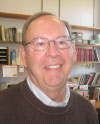 | | Robert Feller is Distinguished Professor Emeritus of Marine and Biological Sciences at the University of South Carolina. He taught undergraduate oceanography to both majors and non-science majors and graduate-level biological oceanography for 35 years. His published marine benthic food web research was conducted in both estuarine and deep-sea habitats. He directed the USC Center for Science Education for 8 years, providing high quality content for student-centered inquiry-based STEM professional development programs for middle and high school teachers, and served on a variety of NSF and NOAA review panels. |
| |
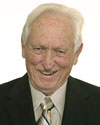 | | D. Bob Gowin is a renowned education researcher and author of several books on the use of pedagogical tools such as concept mapping and “V diagramming” in education. He is currently an Emeritus Professor at Cornell University, where he was on the faculty for 30 years, and also teaches continuing education courses at Stanford University as well as tutors master’s students online both locally and internationally. |
| |
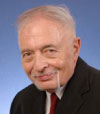 | | Fred Shair is a retired Professor of Chemical Engineering at Caltech. In 1979, he founded the Summer Undergraduate Research Fellowship program. He served as Dean of the College of Natural Sciences and Mathematics for the California State University at Long Beach and is also the former Manager of the NASA Jet Propulsion Laboratory's (JPL) Educational Affairs Office where he helped found the JPL Undergraduate Scholars program, which involves 30 California Community Colleges. A former National President of Sigma Xi, Fred became a "designated lifetime National Associate of the National Academies". |
| |
| FORMAL EDUCATION |
| |
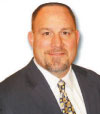 | | Al Byers is currently the Assistant Executive Director of e-learning and government partnerships for the National Science Teachers Association (NSTA). He has successfully managed large-scale technology endeavors such as the NSF Webwatchers Program, the NSF International Polar Year Symposia and Web Seminars programs and is serving as Co-PI on a third NSF grant leading NSTA’s meta-tagging initiative across all of NSTA’s professional development goods and services. |
| |
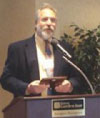 | | Thomas Keller is with The National Academies' Board on Science Education. Tom was president of the national Council of State Science Supervisors and served on the NRC's National Committee on Science Education Standards and Assessment that oversaw production of the National Science Education Standards. He served on the NRC's K-12 Committee on Science Education, and served as a design team member for the NRC's Committee on Test Design for K-12 Science Achievement. |
| |
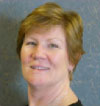 | | Beth Day Miller brings almost twenty years of experience coordinating marine education programs and providing marine science content to a wide variety of students. She currently manages BridgeWater Education Consulting where she provides marine education evaluation, instruction and coordination services. Prior positions range from coordinating Sea Grant's educational activities within NOAA and other Federal agencies, and providing leadership for the Dean John A. Knauss Marine Policy Fellowship Program. She also served as Assistant Program Director for Ocean Sciences Education at the NSF. |
| |
| INFORMAL EDUCATION |
| |
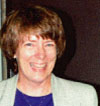 | | Anita Sohus is the Informal Education lead at NASA’s JPL, acting as an advocate for providing access to NASA at museums and other informal education providers. She co-created the NASA Museum Alliance, which serves over 250 museums, science centers, planetariums, aquariums and nature centers worldwide. She is a Fellow of the International Planetarium Society, and participated in many NASA missions to explore our solar systems, universe and planet Earth. |
|












